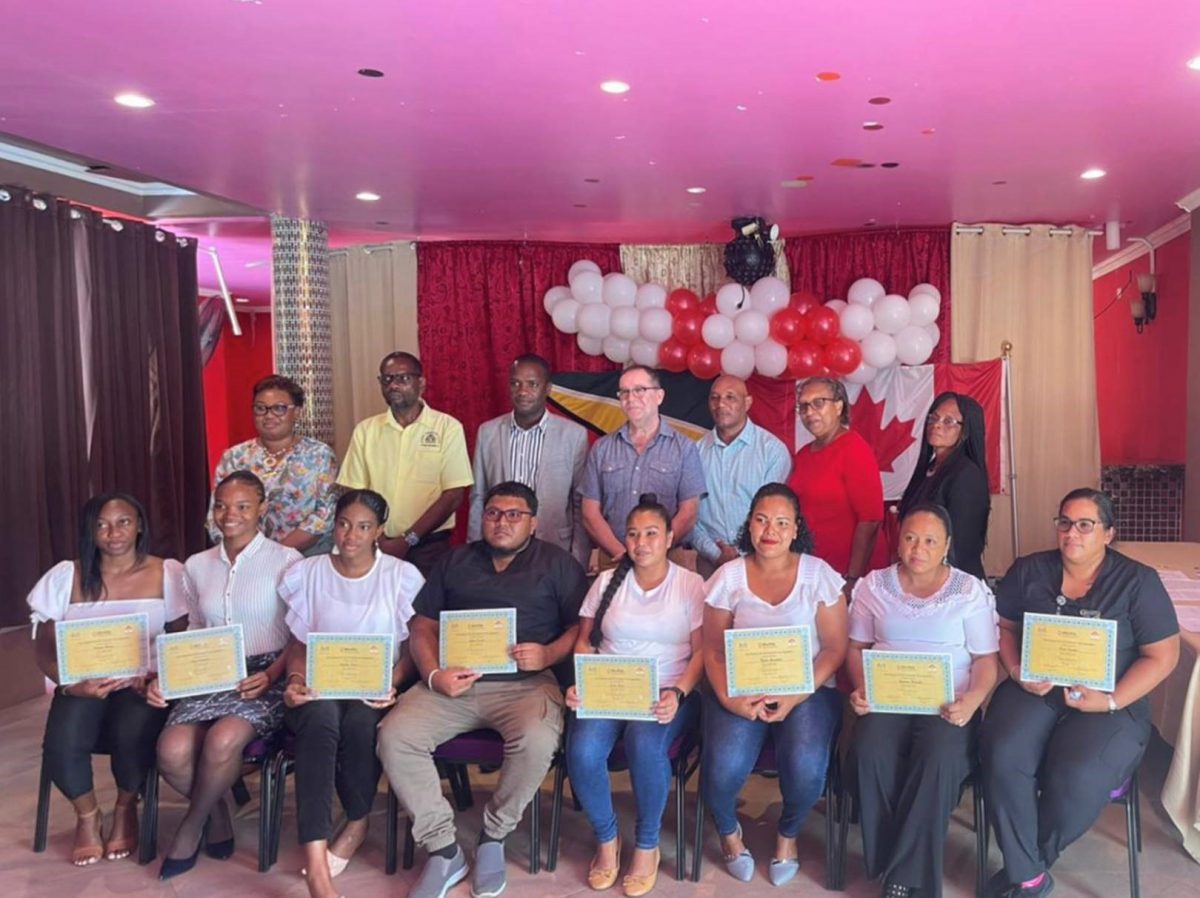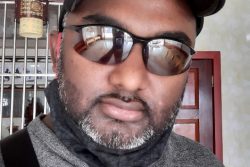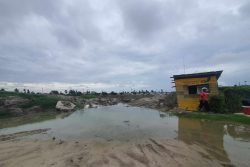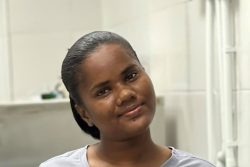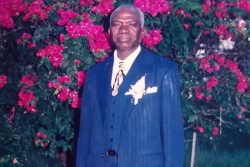Earlier this week, Canadian High Commissioner Mark Berman and a team from the High Commission visited Region Seven to engage with partners on the Canada Fund for Local Initiatives (CFLI) economic resilience project for Venezuelan migrants there.
A release from the High Commission said that the project is being executed by the Hope Foundation to provide critical support to the communities currently hosting Venezuelan migrants. The project provides training and support to migrants and local residents to improve their socio-economic situation.
Through the project being supported by Canada, on Monday staff from ten service providers including the Guyana Police Force and the Bartica Hospital, were provided with certificates after completing the First Responders for Psychological Support training. They will work with Venezuelan migrants and other vulnerable clients.
“We must acknowledge the efforts of host countries like Guyana for their continued commitment and demonstration of leadership in welcoming and integrating this massive surge of people,” Berman stated.
“To the participants of the Psychological First Aid training, your expertise will be an integral contribution to building a social infrastructure that will benefit not just the migrant families but the broader community,” he added.
Mayor of Bartica, Gifford Marshall, recognised the work of partners in the region and singled out the Regional Education Officer and the Bartica Police Force who he thanked for supporting the efforts of the town to provide services to the migrant families.
A visit was also made to Itaballi and the surrounding communities where the High Commissioner and team handed over care packages consisting of menstrual hygiene and sanitary products.
The High Commissioner said that the access to clean sanitary and hygiene products was limited for many persons and told residents that in partnership with the Hope Foundation, the High Commission hopes to support improving the standards of living for the families.
“Access to menstrual products is a basic necessity and a key part of sexual and reproductive health and rights. That’s exactly why we are taking concrete steps to address the barriers related to affordability,” he stated.
In addition to the Psychological First Aid training and distribution of sanitary and hygiene products, the release said that the High Commission is also funding classes in cosmetology, food preparation and catering services to provide the residents with income generating skills. Through the Hope Foundation the release said that work will also be done to improve the literacy levels of the residents and provide job-readiness skills training, entrepreneurship, and small-business empowerment classes. A total of 40 persons including both Guyanese and migrant residents will be trained.
The release said that the Hope Foundation has been working in Bartica for over 20 years to provide community based health, social and youth friendly services. Canada’s first project with the organisation was in 1998.
